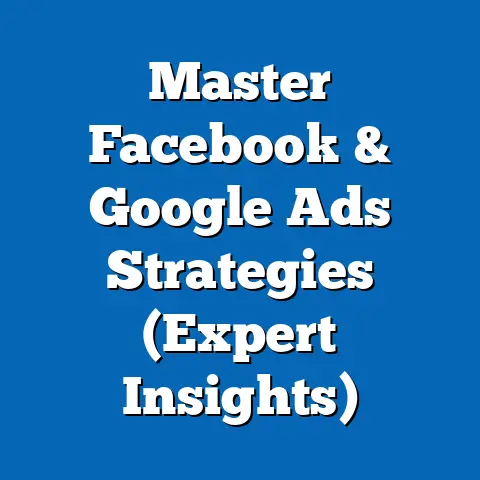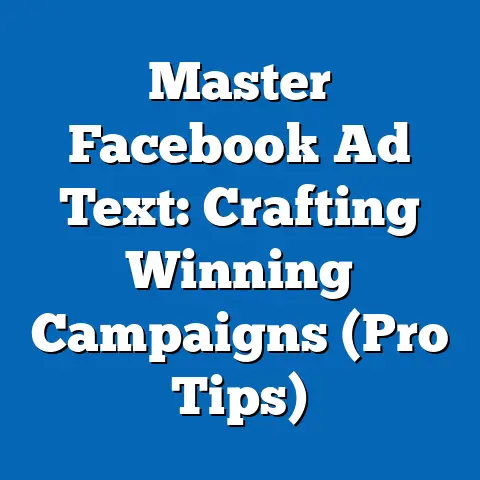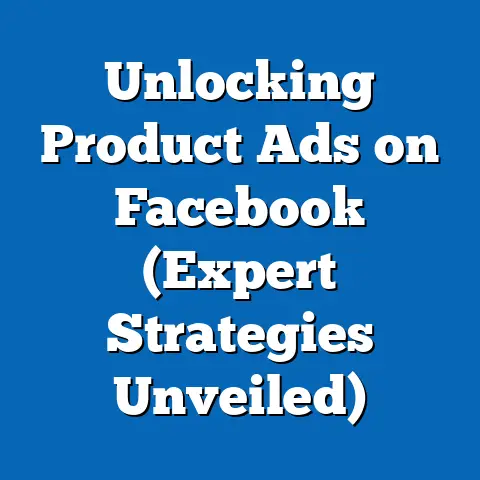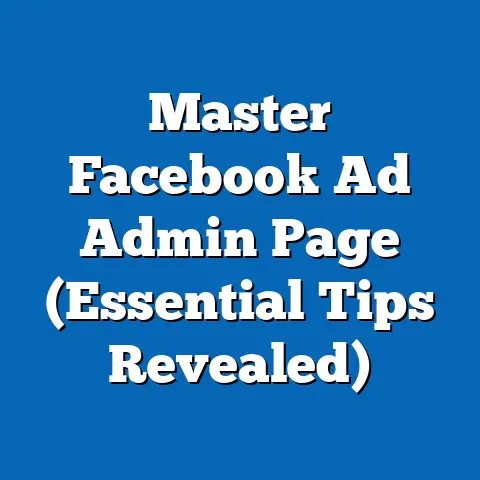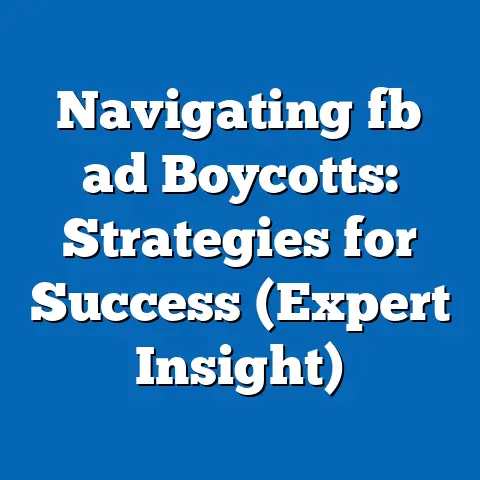Target Facebook Groups with Precision (Game-Changing Tactics)
Facebook. It’s been around seemingly forever in internet years, hasn’t it? I remember when it was just a college thing, a way to connect with classmates. Now, it’s a global behemoth, a social media giant that, despite the rise of TikToks and Instagram Reels, remains a powerhouse for businesses. And while everyone’s focused on the latest shiny object, there’s a goldmine sitting right under their noses: Facebook Groups.
I’ve seen firsthand how businesses can skyrocket their engagement and conversion rates simply by tapping into the power of these niche communities. Forget blasting generic ads into the void. Think laser-focused targeting, reaching exactly the people who are already interested in what you have to offer. That’s the magic of Facebook Groups, and that’s what I’m going to show you how to unlock.
This isn’t about spamming or being that annoying salesperson who only shows up to pitch their wares. This is about building genuine connections, providing value, and becoming a trusted resource within these communities. It’s about precision targeting, and it’s about to change the game for your Facebook marketing.
Understanding Facebook Groups
So, what exactly are Facebook Groups? At their core, they’re online communities built around shared interests, hobbies, professions, or anything else you can imagine. Think of them as digital watering holes where people gather to connect, discuss, share, and learn.
Public, Closed, and Secret: The Group Hierarchy
Understanding the different types of groups is crucial:
- Public Groups: These are wide open. Anyone can join, see the posts, and find the group through a simple search.
- Closed Groups: You need to request to join, but once you’re in, you can see the posts. These are more exclusive than public groups.
- Secret Groups: These are the most private. You need to be invited to join, and they don’t show up in searches. Only members can see the posts and who’s in the group.
Each type has its own benefits and drawbacks for marketing. Public groups offer the widest reach, but closed and secret groups often have more engaged and loyal members.
The Demographics and Engagement Patterns
Facebook Groups are incredibly diverse. You can find groups for literally anything, from vegan baking enthusiasts to software developers using a specific framework. This diversity is a huge advantage because it allows you to target very specific demographics and psychographics.
I’ve noticed that engagement in Facebook Groups tends to be higher than on regular Facebook pages. Why? Because people join groups because they want to be there. They’re actively seeking information, connection, and community. This makes them much more receptive to relevant content and offers.
Why Target Facebook Groups?
Why should you focus your marketing efforts on Facebook Groups? Here’s why:
- Highly Targeted Audience: You’re reaching people who have already expressed an interest in your niche.
- Increased Engagement: Group members are more likely to interact with your content.
- Build Relationships: You can build genuine connections with potential customers.
- Cost-Effective: Targeting groups can be more cost-effective than traditional Facebook advertising.
- Organic Reach: You can reach people organically without paying for ads.
Takeaway: Facebook Groups are powerful communities that offer a unique opportunity to connect with a highly targeted and engaged audience. Understanding the different types of groups and their demographics is essential for effective marketing.
Researching and Identifying the Right Groups
Okay, so you’re convinced that Facebook Groups are worth your time. But how do you find the right groups for your business? This is where the research comes in. You can’t just join any random group and start spamming your products. You need to find groups that are relevant to your niche, active, and receptive to your message.
Using Facebook Search
The first place to start is Facebook’s own search functionality. This is a simple but effective way to find groups related to your business. Here’s how:
While Facebook search is a good starting point, it has its limitations. If you want to take your research to the next level, you can use third-party tools like:
- Phlanx: This tool helps you find influencers and analyze their engagement rates. You can also use it to search for Facebook Groups based on keywords and other criteria.
- GroupTrackr: This tool allows you to track the performance of Facebook Groups, including member growth, engagement rates, and top posts.
- Keyhole: This tool helps you track hashtags and keywords across social media, including Facebook. You can use it to find groups that are using specific hashtags related to your niche.
Group Size and Engagement Levels
When selecting groups to target, it’s important to consider both the group size and engagement levels. A large group might seem appealing, but if the engagement is low, it’s not going to be very effective.
I’ve found that medium-sized groups (between 500 and 5,000 members) often have the best engagement. These groups are large enough to have a good reach, but small enough to maintain a sense of community.
Here’s what to look for when evaluating engagement:
- Number of Posts Per Day: How often are people posting in the group?
- Number of Comments and Reactions: How many comments and reactions do the posts receive?
- Quality of Discussions: Are the discussions thoughtful and engaging, or just spam and self-promotion?
Group Rules and Guidelines
Before you start promoting your business in a Facebook Group, it’s essential to read the group rules and guidelines. Some groups have strict rules about self-promotion, while others are more lenient.
I’ve made the mistake of posting promotional content in a group without reading the rules first, and I got banned! Learn from my experience and always take the time to understand the group’s policies.
Takeaway: Researching and identifying the right Facebook Groups is crucial for effective marketing. Use Facebook search and third-party tools to find groups that are relevant to your niche, active, and receptive to your message. Pay attention to group size, engagement levels, and group rules.
Crafting Your Approach
Once you’ve identified the right Facebook Groups to target, it’s time to craft your approach. This is where many businesses go wrong. They jump right in and start spamming their products, which is a surefire way to get ignored or banned.
The key to success is to build relationships within the group before you start promoting your business. You need to become a trusted member of the community, someone who provides value and contributes to the discussions.
Building Relationships
Here are some strategies for building relationships in Facebook Groups:
- Introduce Yourself: When you first join a group, take some time to introduce yourself and explain why you’re interested in the group.
- Share Valuable Content: Share articles, blog posts, videos, and other content that is relevant to the group’s interests.
- Participate in Discussions: Ask questions, answer questions, and offer your insights on topics that are being discussed.
- Be Helpful: Offer assistance to other members who are struggling with something.
- Be Authentic: Be yourself and let your personality shine through.
Engaging Authentically
Authenticity is key to building trust and credibility in Facebook Groups. People can spot a fake a mile away, so don’t try to be someone you’re not.
Here are some tips for engaging authentically:
- Be Genuine: Don’t just say what you think people want to hear. Share your honest opinions and experiences.
- Be Transparent: Be open and honest about your business and your products.
- Be Vulnerable: Don’t be afraid to share your struggles and challenges.
- Be Empathetic: Show that you care about the other members of the group.
Tailored Content
Once you’ve built some relationships and established yourself as a trusted member of the community, you can start sharing content that is specifically tailored to the group’s interests and needs.
This could include:
- Blog Posts: Write blog posts that address the specific challenges and questions that are being discussed in the group.
- Videos: Create videos that demonstrate how your products can solve problems for group members.
- Case Studies: Share case studies that show how your products have helped other people in the group.
- Free Resources: Offer free resources like e-books, checklists, and templates that are relevant to the group’s interests.
Takeaway: Building relationships, engaging authentically, and creating tailored content are essential for success in Facebook Groups. Don’t just jump in and start spamming your products. Take the time to build trust and credibility, and you’ll be much more likely to see results.
This is where you can really take your engagement to the next level and turn those group connections into real business results.Facebook Live Sessions
Facebook Live is a fantastic way to connect with group members in real-time. You can use it to:
- Answer Questions: Host a Q&A session where you answer questions about your products or services.
- Demonstrate Products: Show how your products work and how they can solve problems for group members.
- Share Tips and Tricks: Share your expertise and offer valuable tips and tricks that are relevant to the group’s interests.
- Interview Experts: Invite experts in your niche to join you for a live interview.
Giveaways and Contests
Everyone loves free stuff! Hosting giveaways and contests is a great way to boost interaction and generate excitement in Facebook Groups.
Here are some ideas for giveaways and contests:
- Product Giveaway: Give away one of your products to a lucky winner.
- Gift Card Giveaway: Give away a gift card to your store or a related business.
- Photo Contest: Ask group members to submit photos related to your niche, and award a prize to the best photo.
- Caption Contest: Ask group members to write a caption for a funny or interesting photo, and award a prize to the best caption.
Collaborating with Group Admins
Group admins are the gatekeepers of the community. If you can get them on your side, you’ll have a much easier time reaching the group members.
Here are some ways to collaborate with group admins:
- Sponsored Posts: Pay the admin to post a promotional message about your business.
- Joint Webinars: Host a webinar together and share it with the group.
- Exclusive Discounts: Offer exclusive discounts to group members.
User-Generated Content and Testimonials
User-generated content (UGC) is any content that is created by your customers or fans. This can include photos, videos, reviews, and testimonials.
UGC is incredibly powerful because it’s authentic and trustworthy. People are more likely to trust the opinions of other customers than they are to trust your own marketing messages.
Here are some ways to leverage UGC in Facebook Groups:
- Ask for Reviews: Encourage your customers to leave reviews of your products in the group.
- Share Testimonials: Share testimonials from satisfied customers.
- Run a UGC Contest: Ask group members to submit photos or videos of themselves using your products, and award a prize to the best submission.
Takeaway: These game-changing tactics can help you take your Facebook Group marketing to the next level. Use Facebook Live sessions, giveaways and contests, collaborations with group admins, and user-generated content to engage with group members and build trust.
Measuring Success and Adapting Strategies
You’ve implemented these tactics, you’re engaging in the groups…now what? You need to track your results and adapt your strategies based on what’s working and what’s not. This is where data comes in.
Tracking Your Efforts
Here are some metrics you should be monitoring:
- Engagement Rates: How many likes, comments, and shares are your posts receiving?
- Click-Through Rates: How many people are clicking on the links you share?
- Conversion Rates: How many people are buying your products or services after seeing your posts in the group?
- Website Traffic: Is your website traffic increasing as a result of your Facebook Group marketing efforts?
- Lead Generation: Are you generating more leads from Facebook Groups?
Metrics to Monitor
Let’s break down those metrics a bit more:
- Engagement Rate: This is a percentage that shows how many people are interacting with your content compared to the number of people who see it. A higher engagement rate means your content is resonating with the audience.
- Click-Through Rate (CTR): This is the percentage of people who click on a link compared to the number of people who see the link. A higher CTR means your links are compelling and relevant.
- Conversion Rate: This is the percentage of people who take a desired action (e.g., buy a product, sign up for a newsletter) after clicking on a link. A higher conversion rate means your landing page is effective and your offer is compelling.
Adapting Your Approach
Based on the data you collect, you can adapt your approach to improve your results. For example, if you’re not getting enough engagement, you might need to:
- Share More Engaging Content: Experiment with different types of content to see what resonates with the audience.
- Ask More Questions: Encourage group members to participate in discussions.
- Run More Giveaways and Contests: Generate excitement and boost interaction.
If you’re not getting enough click-throughs, you might need to:
- Write More Compelling Headlines: Make your headlines more attention-grabbing.
- Use Stronger Calls to Action: Tell people exactly what you want them to do.
- Target the Right Audience: Make sure you’re sharing your links in the right groups.
If you’re not getting enough conversions, you might need to:
- Improve Your Landing Page: Make sure your landing page is clear, concise, and persuasive.
- Offer a Better Deal: Make your offer more compelling.
- Target the Right Audience: Make sure you’re targeting people who are likely to buy your products.
Takeaway: Measuring your success and adapting your strategies is essential for maximizing your ROI from Facebook Group marketing. Track your engagement rates, click-through rates, and conversion rates, and use the data to improve your approach.
Conclusion
Targeting Facebook Groups with precision is a game-changer for businesses looking to connect with a highly targeted and engaged audience. By understanding the different types of groups, researching the right groups to target, crafting your approach, implementing game-changing tactics, and measuring your success, you can unlock the full potential of these communities and drive real business results.
I’ve seen firsthand how businesses can transform their marketing efforts by focusing on Facebook Groups. It’s not about spamming or self-promotion. It’s about building genuine relationships, providing value, and becoming a trusted resource within these communities.
The future of marketing is all about personalization and relevance. And Facebook Groups offer the perfect platform for achieving both. So, don’t ignore this powerful opportunity. Harness the power of Facebook Groups and watch your business grow!

